Have you ever wondered how to become a professional interpreter? Find out a number of ways to start your career!
Interpreting is one of the career paths a person can follow within the translation industry along with translation and project management, just to name the most common ones.
The term appears to raise some confusion among many people outside the industry. It is not rare to hear the word ‘translator’ being used in contexts where the correct term should in fact be ‘interpreter’.
A simple distinction between the two could be drawn the following way:
- Translators work with written text.
- Example: When a company needs to get their annual reports translated from language A to language B, what they need is a translator.
- Interpreters work with spoken text.
- Example: When a company needs to set up a meeting with a supplier from another country, but the parts involved don’t share a common language, what they need is an interpreter to mediate the conversation.
I go into more detail with regard to this distinction on a separate post, which you can read by clicking the link below. It explains very clearly what makes translation and interpreting similar and yet so different:
Continue Reading: Difference Between Translation and Interpreting
In fact, they are so distinct in nature that up until recently you would struggle to find a person who’d specialise in both. Translators would only translate, interpreters would only interpret.
That’s still true to some extended, though certainly not as much as it used to be.
Nowadays, there’s an increasing number of professionals (myself included) providing both translation and interpreting services. And the current supply of ‘hybrid’ university degrees (i.e., offering training in both practices) suggests this number is likely to keep increasing.
If you too are considering becoming an interpreter but don’t know where to start, I’ve put together a comprehensive list of tips and important steps below.
This is complementary to my other post on how to become a translator. Some of the steps will be similar, others may even overlap; but a career in interpreting has several particularities that don’t really apply to translation.
That is not to say you cannot specialise in both. Nevertheless, for the sake of clarity, it makes sense to keep two separate lists.
This list focuses on the UK market. Nevertheless, I am sure it will be helpful no matter where you are!
Learn About the Different Types of Interpreting
Generally speaking, the term ‘interpreting’ refers to the act of translating (or ‘rendering’) speech from a language to another. While that is correct to the most part, it only tells us part of the story.
In reality, depending on the exact setting and circumstances in which the interpreting event takes place, there are different types of interpretation (which are also referred to a ‘interpreting modes‘). There are substantial differences in the way each type is conducted, which means there are also different skills involved.
The two main types of interpretation are Simultaneous Interpreting and Consecutive Interpreting. Understanding the difference between them should be the very first step of your journey:
- Simultaneous Interpreting (SI): This is the most common mode for events such as conferences. If optimal conditions are met, it is characterised by the following elements:
- It is carried out inside a soundproof booth equipped with an audio transmission system.
- Each language combination is served by a team of two interpreters working as a pair.
- The interpreter delivers the target speech while the speaker is producing the source speech (hence the term simultaneous).
- The target audience listens to the translated speech through wireless headphones.
- Consecutive Interpreting (CI): Before the advent of technology made simultaneous interpreting the norm for certain settings, all there was was consecutive interpreting. This is still a widely-used mode for business meetings, press conferences and so forth.
- A language combination is served by one single interpreter.
- The interpreter delivers the target speech after the speaker has delivered the source speech (or part of thereof).
- The interpreter takes notes while the speaker is talking; then, the interpreter renders the speech into the target language.

Note that the above list is not exhaustive. Within both interpreting modes there can be several sub-types of interpreting. To learn more about it in detail, I recommend the below post:
Continue Reading: Understanding the Different Types of Interpreting
For now, if you are an absolute beginner, getting acquainted with the basic distinction between SI and CI should be the very first step of your journey. And if you’ve read this post up until this point… well done, I guess you’ve just completed that!
Understand the Daily Life of an Interpreter
Because there are different types of interpretation that require the use of different skills, chances are you will end up specialising in one of them – or at least you’ll find yourself doing one mode more often than the other.
There are exceptions to the rule, but generally speaking that’s how it goes. And the exact daily life of an interpreter is likely to vary depending on the type of interpretation he or she does the most.
For instance, conference interpreters are often required to travel abroad for long assignments (sometimes lasting a full week), while public service interpreters are more likely to travel every single day to a different location within the same city (their assignments tend to be shorter, usually lasting a couple of hours).
Regardless of what your interpreting career will look like, travelling a lot is inevitable. Not the kind of travelling your average Instagrammer loves to post about, but actual business travel – you know, the stressful type of travelling. 🙂

Driving to areas where parking is a nightmare, running after public transportation, struggling to find your next assignment’s venue, getting nervous because you may be running late, handling phone calls several times throughout the day – that’s the daily life of an interpreter in a nutshell.
If this is a lifestyle that sounds appealing (or at least manageable) to you, then you’ll be fine.
‘Speaking the Languages‘ Is Not Enough
A common misconception, fed by people who are unfamiliar with the practice, is that ‘speaking the languages’ is everything you need to become a professional interpreter.
I know this from personal experience. When I told my friends I was going back to Uni to study interpretation, the very first thing I heard back was, of course, ‘what’s that?‘.
Then, once I had explained what an interpreter actually does, the follow-up comment would be something along the lines of ‘good for you, you speak both languages so I’m sure you’ll smash it‘.
Nothing could be farther from the truth! As a potential interpreting prospect, the sooner you understand that, the better.
Speaking a second language is a necessary condition, not a sufficient one. One may speak two different languages to a perfect degree and still be a terrible interpreter.
That’s because the type of skills that are required during the act of interpreting go far beyond the mere linguistic expertise.
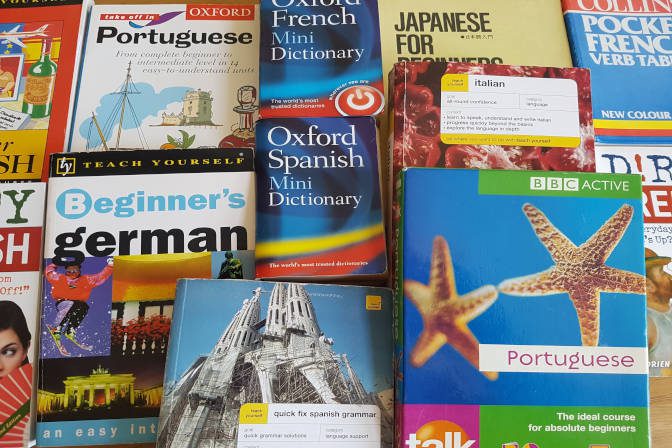
Interpretation is a highly demanding activity that pushes one’s cognitive effort to its limits. To develop those essential, non-linguistic skills that are at the core of the interpreting practice, a thorough training programme – combined with lots of practice – is paramount.
The main take-away here is that you should not assume, just because you speak two or more languages perfectly, that it is a good idea to just start approaching language service agencies to offer interpreting services – that plan may backfire if you’re unprepared.
Of course, some people happen to be naturally gifted and can do amazingly complex things to perfection without even trying, but that’s only a tiny fraction of the population. The common mortal should first get some training and understand the basic foundations and dynamics of how interpretation works.
This is not to say you should jump to a master’s degree straight away. That’s too large a personal and financial commitment if you are in such an early stage of making a career decision.
Look for some online tutorials first, perhaps get some text books (I recommend a couple further down in this post); the important thing is that you get some exposure to the practice before deciding whether it is the right profession for you.
Assess Your Current Skills (and Identify Your Weaknesses!)
Before making a decision as to whether you should pursuit interpretation as a career, it is important that you have a clear idea of your starting point.
As already mentioned, training and practice are essential. There’s even a saying in the interpreting industry that goes something like this: “interpreters are made, not born“.
You should take stock of your strengths and assess whether these could be a good start to becoming a professional interpreting.
Equally, you should take stock of your weaknesses in order to visualise where you’ll need to improve (and trust me, you will need to work on those weak spots, so knowing what they are in advance is a great start.)

Start by asking yourself the following questions:
- How good are your communication skills, both in your native language and in your second language?
- How advanced is your level of fluency in your main foreign language? Are you bilingual, or at least near-native?
- How well do you know the culture of that foreign language?
- How comfortable do you feel with public speaking? Are you okay with being in front of an audience, regardless of how large or how small it may be?
- Do you see yourself as an adaptable person? Are you able to work outside your comfort zone and improvise if need be?
- Do you work well under pressure?
- Are you proactive and willing to make things work even if your work conditions are not ideal?
- Have you got good interpersonal skills? Can you infer how what a person is thinking or feeling from their tone of voice and body language?
- Are you comfortable with meeting and working with and for new people every day?
- Are you prepared to work freelance, with no certainty as to how much you’ll earn at the end of each month?
- Are your organised, efficient and able to multitask?
Ideally, you should possess at least some of the above qualities. It’s okay if you don’t have all of them yet (I certainly didn’t when I first started.)
I firmly believe everything I’ve included in the list can be learned and perfected, so don’t give up just because you don’t have it all yet. For now, just take note of what you feel you’re not very good at: that will be addressed in your training.
Get Acquainted With The Basics of Interpreting
This is my personal advice: interpreting prospects should get acquainted with the basics of interpreting before seeking a qualification. By that I mean a bit of self-study before taking a huge commitment such as enroling in a university degree.
Not only it will give you a clearer understanding of your strengths and weaknesses, it will also help you understand whether you really enjoy interpreting.
Many students don’t do their due diligence before starting their master’s degree, and some end up realising they actually don’t like what they’re studying. That’s a waste of time and money (which happen to be the two things I most hate wasting…)

A relatively small investment in a couple of books is the best thing you can do as an absolute beginner. That will will give you an idea of:
- What split attention is and how to develop it
- Note-taking principles and techniques
- Basic public speech exercises
- The general dynamics of different types of interpreting assignment.
Three books that I’ve used and strongly recommend are:
- Interpretation: Techniques and Exercises by James Nolan
- Note-taking for Consecutive Interpreting by Andrew Gillies
- Conference Interpreting by Andrew Gillies
Tip: Go for the paperback version and check whether there are any second-hand options (hardcover versions can be quite pricey.)
Seek a Qualification
I’m often asked ‘do you need a degree to be an interpreter?‘. My answer is always the same: you don’t exactly need it, but it surely will be helpful.
The reason for that is the fact that, unlike what happens with some professions, there aren’t any particular official barriers for anyone to declare herself an interpreter. You don’t need a license or any particular qualification per se.

For that reason, from a client’s perspective (including interpreting agencies), knowing who to trust is not always easy. A qualification will therefore grant you an important level of credibility.
Note it doesn’t need to be a university degree. Training courses offered by a reputable professional body or similar institution are also a valid, more affordable solution to become a professional interpreter.
A good example is the Diploma in Public Service Interpreting (DPSI). This is a nationally-recognised qualification (in the UK) for public service interpretation (courts, hospitals, clinics, etc). You can take a preparation course for the exam from professional bodies or institutions such as CIOL.
Become an Accredited Interpreter
Becoming accredited by an association or professional membership body is yet another recommended step to give you more credibility and additional exposure as a professional interpreter.
The main associations for UK-based interpreters are:
- AIIC (international body for conference interpreters)
- NRPSI (for public service interpreters)
- ITI (all types of interpreters, also for translators)
- CIOL (all types of interpreters, also for translators)
- APCI (police and court interpreters)

Keep in mind you need to meet certain criteria to be accepted, which may include proof of experience.
There’s also an annually membership fee you need to pay, which tends to be worth it because, once you become a member, your profile is added to their ‘find-a-linguist’ directory, which gives you a great deal of visibility for potential clients.
Be Prepared to Run a Business
Being a freelance interpreter means that you will be running your own business. You won’t have a fixed salary, no sales team to find you new customers, and certainly no accounting department to handle your taxes. You are pretty much in control of everything, for better or worse.
Even though this may sound scary, in reality it’s just like any other skill: everyone can learn how to run a small freelance business, provided that they dedicate time and energy to it.

Some of the things every professional freelance interpreter should do include:
- Creating a professional website to present and sell your services.
- Finding ways to increase productivity.
- Handling every customer enquiry promptly and professionally.
- Keeping track of your business’s financials (net and gross profit, annual income, etc.)
- Being duly informed about your taxes and how to be tax efficient.
- Finding new ways of getting regular work from customers and exploring new streams of income.
It may be tough when you first start, but you’ll get used to it. Once you are in full control of your business, everything comes together and you’ll become more and more efficient at running it.
Go After Those Customers!
One the most important qualities an interpreter has to possess is persistence. Freelancing means instability. Throughout your career you’re likely to face peaks of ‘feast and famine’, with some great months alternating with bad ones.
When hard times hit, you must be resilient and proactive. To get that much needed work from potential customers you need to approach them, go after them and make yourself noticed.

If you’re in an early stage in your career, start by getting in touch with a selected number of interpreting agencies to get registered to their database. Almost every agency will have a ‘join us’ form for new linguists on their website.
On the other hand, if you’ve already done some work for a number of clients but you haven’t heard from them in a while, that may be the right time to send them a friendly email to remind them that a) you exist and b) you are fully available to take on new interpretation assignments.
Keep Learning and Practicing
Professional interpreters should always maintain a long-term personal development plan. Even well-established linguists should have a next step up in mind to ensure they remain ahead of the competition.
Some of the things you should keep doing throughout your career include:
- Keep practicing your interpreting skills – even when you are out of work! For instance, at the very least, try to do a short interpretation exercise every morning (say, a 5-minute note-taking drill or simultaneous exercise). Interpreting is like a workout: once you’ve perfected it you’re unlikely to forget it, but you can get rusty if you don’t keep practicing.

- Think of new specialisatims you could acquire or subject areas in which you can deepen your knowledge. Draw a plan towards that.
- Create glossaries for different subject areas and keep them up to date at all times.
- Always have your next goal in mind. Your new objective could go from being accredited by a professional body you’d like to join to getting a new qualification – the options are endless. The important thing is that you always keep yourself motivated by working towards a specific objective.
Remember: in a competitive world such as ours (i.e., the language services industry), specialisation is king. Developing a unique professional profile is what will make you stand out from the crowd.
If you’ve found this post helpful or think it could be useful to a friend who perhaps is – or is planning to become – a translator or interpreter, please kindly consider buying me a coffee by using the button below:
I put all my heart and soul into the content I produce in order to help my fellow linguists set foot in the industry. Most of what I do is available to everyone for free.
Donating is 100% optional, but greatly appreciated. A short espresso will do! ☕



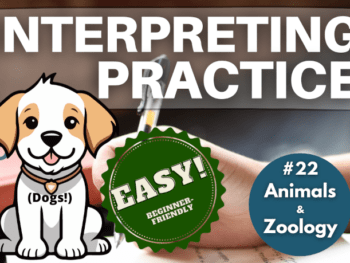
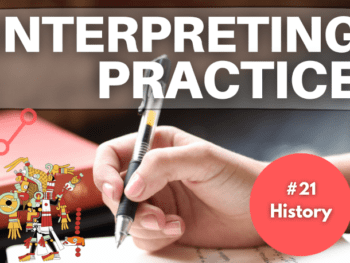
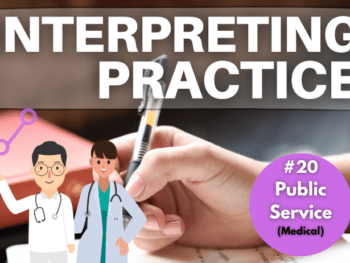
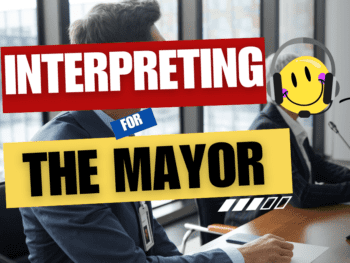

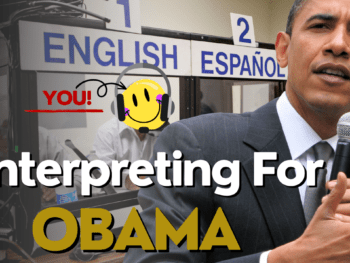
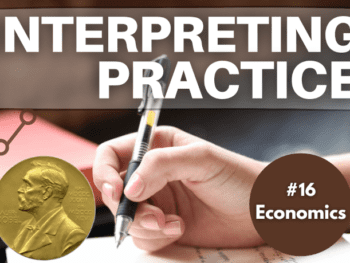
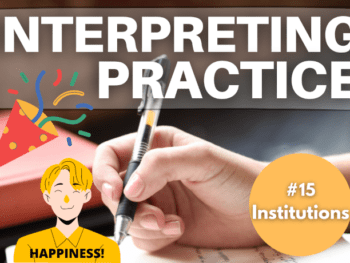

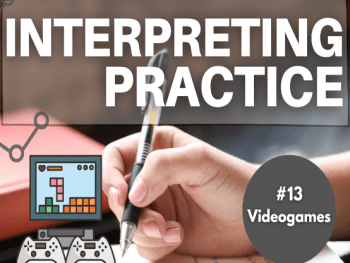
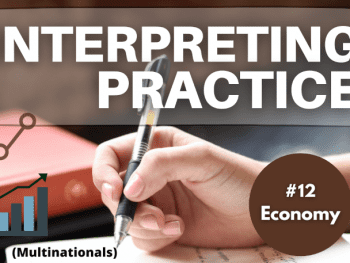

 The Difference Between ‘Translator’ and ‘Interpreter’
The Difference Between ‘Translator’ and ‘Interpreter’
This website is amazing and has so much useful information! Thank you for your work!
Many thanks for your support!
Thank you very much for all your information. The spirit of Interpreting/Translating is to elevate understanding to a higher level. What could be more noble than that?
My own opinion.